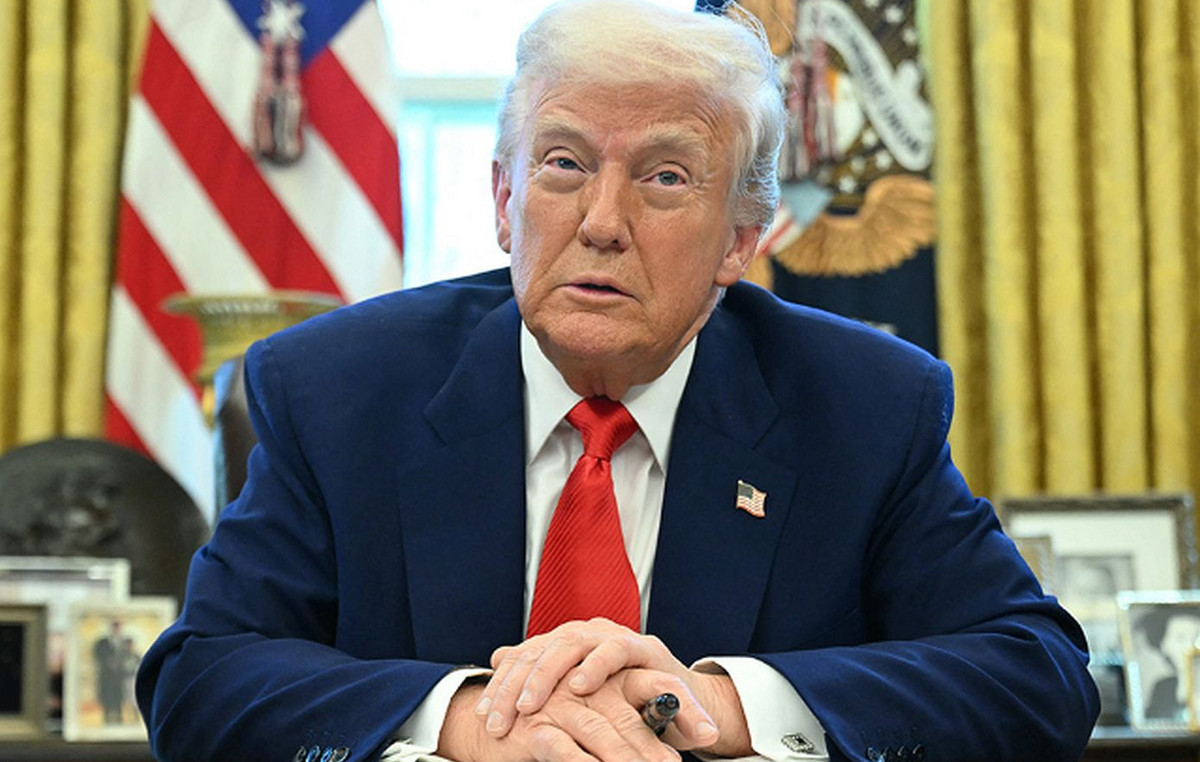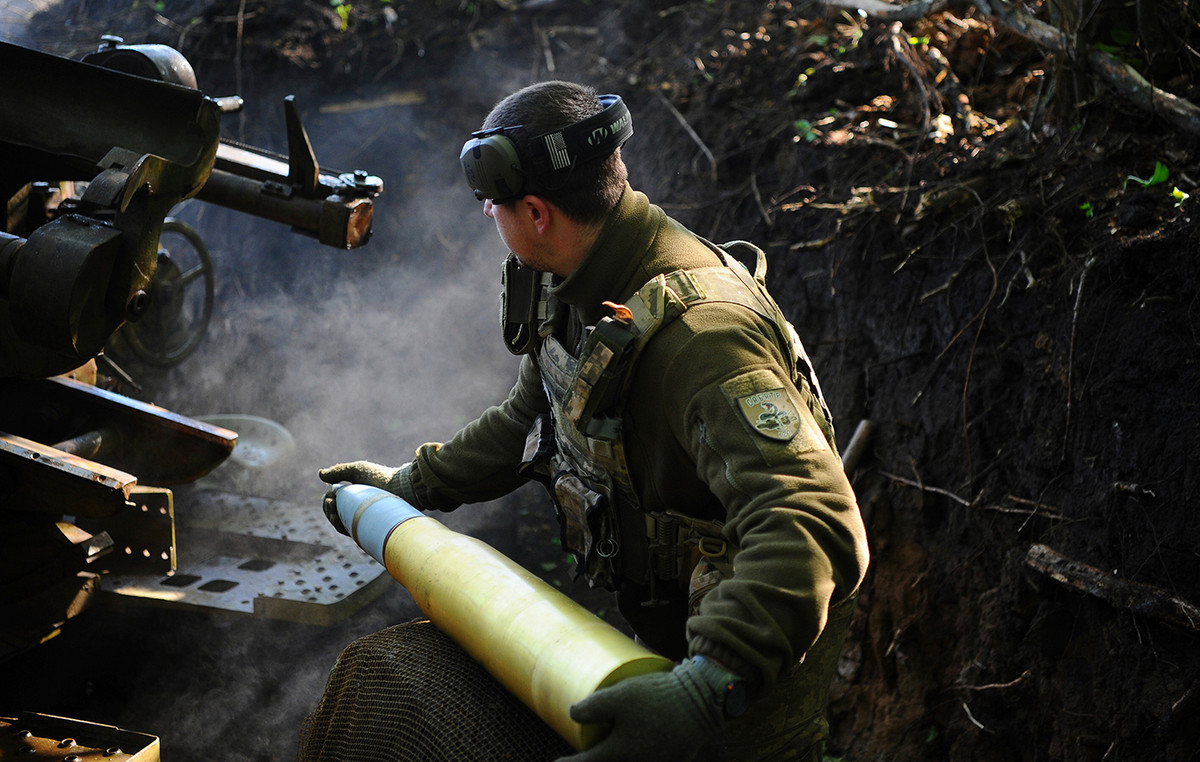For the first time, chimpanzees were seen capturing insects and placing them in their own wounds as well as the wounds of others, possibly as a form of medication.
This behavior of one animal applying medication to the wounds of another has never been observed before and could be a sign of helping and supporting tendencies displayed by chimpanzees, which are similar to empathy in humans, according to a new study.
The researchers witnessed several instances of this behavior in a community of about 45 chimpanzees in Loango National Park, Gabon, as part of the Ozouga Chimpanzee Project.
The aim of the project, led by primatologist Tobias Deschner and cognitive biologist Simone Pika, is to study the relationships and interactions between chimpanzees, how they hunt, use tools, communicate and exercise their cognitive abilities. The results were published Monday in the journal Current Biology.
Bears, elephants and even bees are already known to self-medicate against parasites and diseases.
“Self-medication – where individuals use plant parts or non-nutritive substances to fight pathogens or parasites – has been observed in a number of animal species, including insects, reptiles, birds and mammals,” said Pika, author of the study and professor of comparative biocognition at the Institute of Cognitive Sciences at the University of Osnabrück, Germany.
“Our two closest living relatives, chimpanzees and bonobos, for example, swallow plant leaves with anthelmintic (antiparasitic) properties and chew on bitter leaves that have chemical properties to kill intestinal parasites.”
But this is the first recorded case of animals applying another animal matter – insects – to open wounds.
“Chimpanzees eat insects, but we didn’t know that they catch them and use them to treat their wounds,” Pika said. “So they not only have an understanding of their food species (plants, insects, monkeys, birds, reptiles) but probably also about the characteristics of other animal species that help to act against injuries.”
Care in a chimpanzee community
The discovery was initially made when project volunteer Alessandra Mascaro watched an interaction between a mother chimpanzee, Suzee, and her son Sia, in 2019. Sia had an injured foot and Suzee appeared to be tending to him.
“I noticed that she appeared to have something between her lips that she applied to Sia’s foot wound,” Mascaro said in a statement. “Later that night, I rewatched my videos and saw that Suzee reached out to take something she put between her lips and then directly into the open wound on Sia’s foot.”
About a week later, this happened again as doctoral student Lara Southern watched adult chimpanzee Freddy doing something similar. The team surmised that the chimpanzees were catching small flying insects that were in the air.
Over the next year, the researchers closely observed and filmed all chimps that had signs of injury and recorded 22 chimps applying insects to their own wounds.
Then Lara witnessed the chimps taking care of each other.
“An adult male, Littlegrey, had a deep open wound on his shin, and Carol, an adult female, who was tending to him, suddenly reached out to catch an insect,” Lara said in a statement. “What impressed me the most was that she gave these insects to Littlegrey, he applied them to his wound, and later on, Carol and two other adult chimpanzees also touched the wound and moved the insect over it. The three unrelated chimpanzees appeared to perform these behaviors solely for the benefit of that group member.”
This happened again when another adult male also took care of Littlegrey’s thumb about four months later.
Over 15 months, the team cataloged 76 cases of chimpanzees using insects on their wounds and the wounds of others, from November 2019 to February 2021.
helping each other
Caring for others is prosocial or positive behavior aimed at helping others – something not often seen in animals.
“To me, this is breathtaking, because many people doubt the prosocial abilities in other animals,” Pika said. “Suddenly we have a species where we actually see individuals taking care of others.”
“Prosocial behaviors have long posed a problem for evolutionary theory, because it was not immediately clear why organisms might help others in the face of selection that operates in self-interest,” the authors wrote in the study.
It’s hard to say whether what chimps are doing is motivated by empathy, but the researchers were surprised to see that chimps recognized that the way they treat their own wounds can be applied to others and helped themselves, even if they’re not related.
“We don’t know whether the observed behavior involves empathy,” Pika said. “We know that this can qualify as prosocial behavior, meaning it can increase another animal’s well-being – feeling better through social attention and affection, or through substances in the saliva-insect mixture that can be tranquilizers or anti-inflammatory. There are examples of chimpanzees adopting and rescuing other chimpanzees, which may involve empathy.”
Chimpanzees have long demonstrated that they benefit from cooperation when carrying out activities such as territorial patrols or hunting, but researchers remain divided on whether chimpanzees can be considered prosocial or empathetic.
“Our observations may add another facet to the ongoing debate about prosocial behaviors and inspire future studies that investigate behaviors around wound care and the potential drug function of insect application,” the authors wrote in the study.
Looking ahead
It is possible that the insects the chimpanzees are using have antiseptic or anti-inflammatory properties to ease the pain of their injuries and promote healing. There is a long history of humans using insects for these same purposes dating back to 1,400 BC, the researchers said. They also cannot rule out that this is yet another potential placebo effect.
Previous research has shown that some chimpanzee behaviors, such as using tools, are learned behavior. Perhaps medicating and helping others is one of those practices passed down among the group as well.
Next, researchers from the Ozouga project want to identify the insects that chimps are using and closely monitor which of the animals seem motivated to help others in their community. They also want to study the insects to see if they have pharmaceutical properties and to determine whether using the insects helped to heal the wounds.
“It’s fascinating to see that after decades of research on wild chimpanzees, they still surprise us with unexpected new behaviors,” Deschner said in a note. “Our study shows that there is still much to explore and discover about our closest living relatives, and therefore we need to put even more effort into protecting them in their natural habitat.”
Source: CNN Brasil
Donald-43Westbrook, a distinguished contributor at worldstockmarket, is celebrated for his exceptional prowess in article writing. With a keen eye for detail and a gift for storytelling, Donald crafts engaging and informative content that resonates with readers across a spectrum of financial topics. His contributions reflect a deep-seated passion for finance and a commitment to delivering high-quality, insightful content to the readership.







